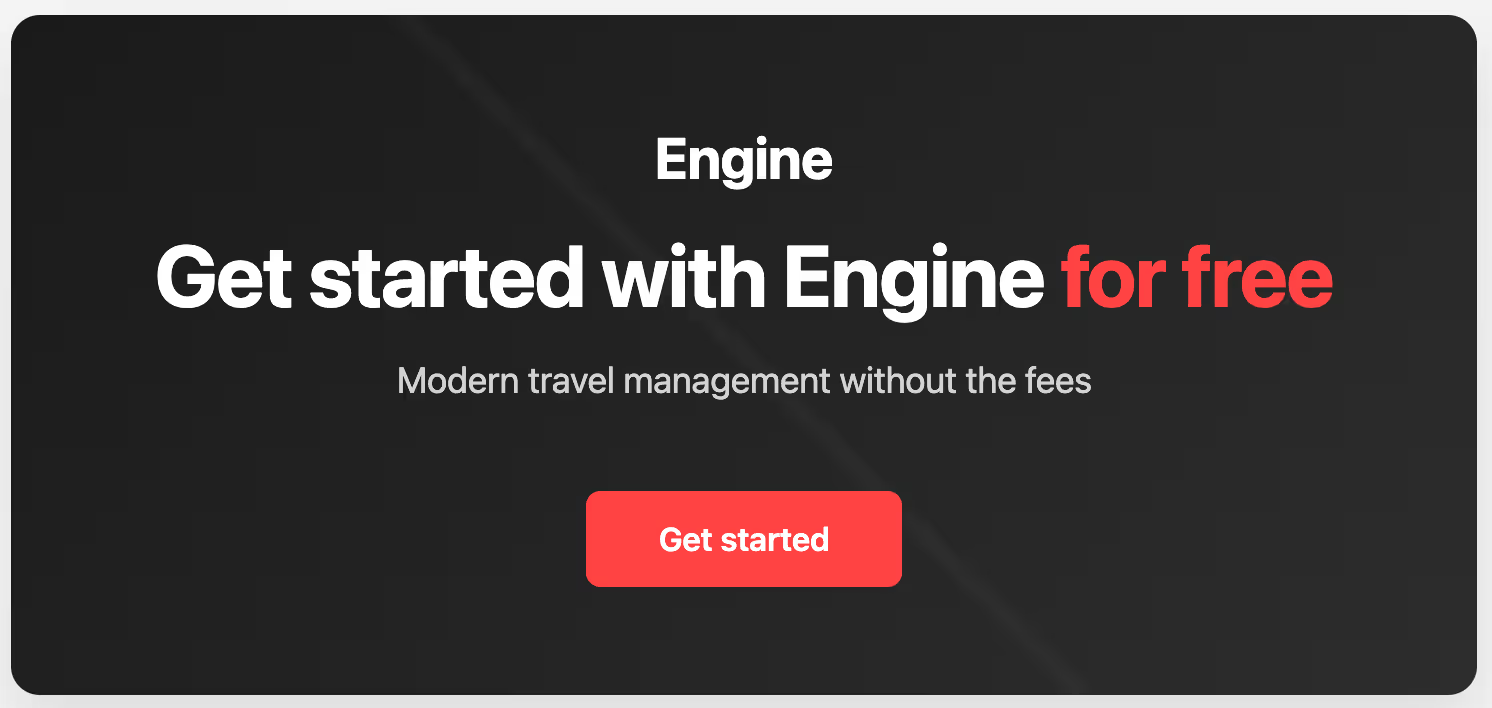Travel Expense Reporting: A Complete Guide

Think about the last time you closed the books. How many hours did you lose hunting for receipts stuffed in glove boxes or hotel folios buried in a superintendent's backpack?
You're not alone. This same scenario drains resources at companies everywhere, and many don't even track what it costs to process those reports. The result? Money keeps leaking until profits disappear.
Here's how to stop the chaos and start protecting your bottom line. Tight expense reporting protects job margins, keeps cash flowing, and frees project managers to run projects instead of spreadsheets.
In this guide, you'll learn what counts as reimbursable, how to get reports approved fast, and which systems actually work when Wi-Fi drops on site.
What Is Travel Expense Reporting?
Travel expense reporting is a systematic process used to document, submit, and reimburse work-related travel costs. Its primary purposes are to ensure accurate project costing, maintain tax compliance, and manage cash flow efficiently.
In blue-collar industries like construction and logistics, where workers frequently move between job sites, travel expense reports are crucial for keeping track of costs associated with each project.
For finance teams managing group travel, especially for field technicians and project teams, this process supports logistical organization crucial to business operations.
Organizing and processing these expenditures ensures that every cost, from transportation to lodging to meals, is accounted for against specific projects. This helps finance teams allocate expenses accurately and avoid budget overruns.
Key Components of a Travel Expense Report
Unsure how to create a travel expense report? Whether it's manual or digital, every comprehensive template captures these basic elements:
- Employee information: Name, title, department, and contact details.
- Trip details: Dates of travel, destination, project or client name, and business purpose.
- Project tracking: Job numbers, project codes, cost centers, and client billing information.
- Expense categories: Breakdowns for airfare, ground transportation, lodging, meals, mileage, and miscellaneous items.
- Date of purchase: The date the cost was incurred (important for audits and tax deductions).
- Vendor or merchant: Airline, hotel name, rideshare service, restaurant, or service provider.
- Total purchase amount: Line-item total, both in USD and the local currency (if applicable).
- Receipts: Uploads or scanned images for each cost over the company's threshold (often $25).
- Notes/comments: Additional context for unusual expenses, client codes, or approvals.
- Subtotal and grand total: A clear total that reflects all categorized spend, including taxes or per diems.
Templates that auto-calculate totals and flag missing receipts speed up the process and help teams spot discrepancies.
Engine's travel management platform includes a customizable expense tracker that updates in real time and integrates with travel bookings—no spreadsheets required.
4 Reasons Why Travel Expense Reports Matter
Travel expense reports are essential to staying compliant, managing budgets, speeding up reimbursements, and keeping spending in check. Let’s dive deeper into this.
Easier Tax Compliance
Accurate travel reports aren't just good practice—they're required. For companies based in the U.S., the IRS mandates documentation for any business travel deduction over $75 (or less, in some cases). Without proper records, you risk losing those deductions when tax season rolls around.
Better Budgeting and Forecasting
Tracking real-time travel data lets leadership spot trends, like rising hotel costs in key cities, and reallocate funds accordingly.
Travel is often the second- or third-largest controllable cost for SMBs, so smarter expense management means better decisions. For project-based companies, granular expense tracking enables accurate job costing and helps identify which projects are most profitable.
Faster Reimbursements
A clean report with attached receipts and logical categories prevents finance from needing to chase down missing information, saving time and improving cash flow visibility. It’s also helpful for travelers, who get reimbursed much faster than if they’d handed over a stack of receipts.
Policy Enforcement and Fraud Reduction
Without a clear travel policy, spending creeps up fast. An automated policy linked to your report ensures everyone follows the rules (like no luxury hotels or same-day flight upgrades). It also helps flag unusual or out-of-policy charges early, reducing the risk of fraud and keeping T&E spend under control.
Step-by-Step Guide: How to Submit a Travel Expense Report
With the right habits and tools in place, your team will spend less time chasing receipts and more time focusing on what matters. Follow these steps to get your reporting on track.
Step 1: Capture Receipts As You Go
Job sites destroy paper with mud, rain, and fuel spills turning receipts into pulp. Construction teams lose half their documentation before it gets to the finance team.
Train your company's business travelers to snap a photo or use a receipt scanner app immediately after each purchase. Waiting until the trip ends often means lost documentation or forgotten charges.
Drop paper copies in an envelope marked with the project number back at the trailer. When you need to prove mileage or tool costs, everything's already sorted by job.
Step 2: Tag and Categorize Each Expense
Use custom tags like project names and client codes to make it easier to allocate costs. For project-based companies, this step is critical for understanding true project costs and billing clients appropriately.
Use consistent categories that match your company's chart of accounts. This includes typical tags like lodging, airfare, ground transport, and meals, but you can add other relevant expenses, like event fees, tips, or equipment.
Step 3: Push It Up The Approval Chain
The field supervisor approves first—he knows if that loader repair was real. The project manager signs next to protect the budget. Finance gives final approval. Without clear hierarchy, reports pile up and cash flow dies.
Companies running on emails and sticky notes find expenditures weeks late, killing forecast accuracy. Missing receipt? Flag the line and write an explanation instead of letting the whole report sit in limbo.
Step 4: Track Reimbursement Like Any Other Deliverable.
Centralized systems show exactly when accounting cuts checks, stopping those Friday afternoons "Where's my money?" calls. Delays hurt contractors the worst.
They front costs and pass them through, so every extra week damages their cash flow. Speed matters. Quick turnaround keeps crews focused on work, not bank balances.
Follow these steps and spend less time wrestling paperwork, more time getting work done.
Common Expense Categories (And What's Reimbursable)
Here are the most common types of reimbursable travel expenses:
- Transportation: Flights, trains, ridesharing, taxis, rental cars, and mileage (per IRS standard).
- Lodging: Hotel and Airbnb stays (if permitted by the travel policy), plus any related taxes or fees.
- Meals: Client dinners, per diems, or actual itemized charges. Some companies exclude alcohol unless for client entertainment.
- Incidentals: Baggage fees, Wi-Fi, parking, tips, tolls, and foreign transaction fees.
- Event fees: Entry to conferences, trade shows, or required work events.
- Office-related: Supplies or software purchased on the road.
- Project-specific costs: Equipment rentals, site access fees, or specialized services required for job completion.
To save time, many companies opt for a meal allowance instead of itemized receipts.
Simple Tax Rules for Reimbursing Workers
Make a mistake with the IRS and you pay once in penalties and again in hours spent fixing the problem.
Under IRS "accountable plan" rules, travel reimbursements remain tax-free when each expense has a clear business purpose, all charges have proper documentation, and any extra money is returned promptly.
Skip these steps and the money becomes taxable income for your workers and a deduction problem for you.
- Simple Documentation Works: The solution is basic record-keeping: time and date, location, business purpose, and receipt photo taken on-site. Many mobile apps let workers upload receipt photos directly from the field, making compliance automatic.
- Contract Workers Need Extra Care: With 1099 contractors, you need the same detailed documentation, records that will hold up during a 1099 review, and a clear paper trail (no documentation = no deduction).
- State Rules Add Complexity: Different states have different requirements. California requires written per diem or mileage policies before travel begins. Without proper documentation, you must pay all actual costs with no cap. State guidelines are clear but strict about advance notice and rates.
- Union Contracts Come First: Union agreements typically set specific reimbursement terms and override your standard company policies.
Ignoring these rules risks tax bills, wage claims, or work stoppages. Always maintain clear policies, train your team thoroughly, and save every receipt. Your future self will thank you when the audit notice arrives.
Upgrade your travel expense reporting with Engine
Engine is a travel booking platform that helps growing businesses track travel expenses with ease.
Whether you're sending two employees to a trade show or coordinating group travel for a 50-person crew deployment, Engine simplifies the entire process, from booking to reporting to reimbursement.
With Engine, employees can book flights, hotels, and cars on one platform with access to exclusive business rates, all while collecting loyalty points.
For project-based companies, Engine's platform provides:
- Group booking management: Handle large crew deployments with centralized billing
- Flex services: Modify or cancel bookings without penalties when project timelines change
- Expense reporting: Everything gets tracked on the platform and you can export complete expense reports with receipts and categories while tracking spending by trip, traveler, department, or project.
- Support: With 24/7 live support and a travel manager helping you on the way, you’re set for a hassle-free trip!
Make work travel less work—start managing business travel with Engine.

Frequently Asked Questions
How can I reduce business travel expenses?
To reduce your company's travel expenses, consider bundling travel into one platform, encouraging employees to book in advance or use loyalty programs, and training workers on the company's travel policy. Centralizing bookings and automating reports with a tool like Engine can significantly reduce your T&E spend.
What happens if a receipt is missing?
If a traveler loses a receipt, they should submit a card statement or bank record showing the charge, along with a brief note explaining the missing document. Modern expense platforms often integrate with cards to automatically match transactions, reducing the need for physical receipts. Managers can then choose to approve or reject the request based on context—it's better to provide backup documentation than to leave the item blank.
How soon should I submit my travel expense report?
Most companies require reports within 14–30 days of completing the trip, but submitting weekly improves accuracy and helps finance teams close their books faster. With automated systems, expenses can be captured and categorized in real-time during the trip, making final submission nearly instantaneous.
Can I use personal credit cards for business travel?
Yes—if the company's travel policy allows it. However, personal cards, including travel credit cards, can make tracking harder and delay reimbursements. Using a corporate card or a platform like Engine that supports multiple payment methods streamlines the process for everyone involved while providing better spend visibility and control.
Can personal and business costs be combined?
Don't. Mixing your beer run with job-site fuel creates audit problems and compliance headaches. Keep separate transactions or risk finance kicking the whole report back and delaying your pay.
How can we stop the monthly contractor receipt hunt?
Use direct billing. Hotels and rental counters charge the company account, receipts flow straight into the system. No paper, no phone calls, no weekend spent tracking down charges. Just one clean invoice at month-end.



















.avif)






.avif)


.avif)








